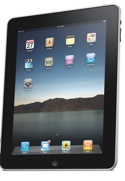Research and Markets (http://www.researchandmarkets.com) says the adoption of SuperSpeed USB (3.0) will lag that of USB 2.0.
The universal serial bus (USB) specification shipped in more than three billion devices in 2009, including the computer, computer peripheral, consumer electronics (CE), communications, and automotive segments. By 2012, the number of wired USB-enabled devices shipped will exceed four billion, according to Research and Markets.
High-speed USB device shipments dominate the current market. However, in late 2009, the first 5Gbps SuperSpeed USB devices shipped. Initially, SuperSpeed USB will be found in computes and PC peripherals, such as external hard drives and flash drives, before migrating to portable devices requiring increasing amounts of storage, including digital cameras, portable media players, and high-end mobile phones.
The primary limiting factor in SuperSpeed adoption is its integration into computer core logic chipsets, which is not expected until late 2011. This will limit SuperSpeed adoption in computers, which will have a ripple effect on SuperSpeed in those devices that connect to computers.
Research and Markets says USB has been extremely successful in the digital still camera and digital camcorder markets because most users want to download images to computers to store video recordings and still pictures or to print pictures. As picture file sizes increase with camera resolution, and as camcorders move from standard-definition (SD) to high-definition (HD), the desirability of SuperSpeed USB becomes even more apparent. As a result, adoption of SuperSpeed USB into digital cameras and camcorders will be much more rapid than other CE device segments, with penetration levels reaching 50% and 60% respectively, by 2014, says Research and Markets.
SuperSpeed USB can move 25GB of data in 70 seconds, the same amount of data would take nearly 14 minutes using high-speed USB, according to Brian ORourke, principal analyst, Research and Markets. This dramatic leap in download times makes the adoption of SuperSpeed USB into digital camcorders and cameras a natural migration. Research and Markets expects to see the first SuperSpeed USB camcorders hit the market in the second half of 2011. The research group also found the following:
° Nearly 160 million digital TVs will ship with USB in 2014.
° By 2014 nearly seven million set top boxes will be have integrated SuperSpeed USB
° SuperSpeed USB will reach 40% penetration in the portable digital media player market in five years.
° Approximately 225 million SuperSpeed USB flash drives will ship in 2014, representing a compound annual growth rate of 791.8% from 2009 to 2014.
° More than three billion USB-enabled devices shipped in 2009; over 4 billion will ship in 2012.




